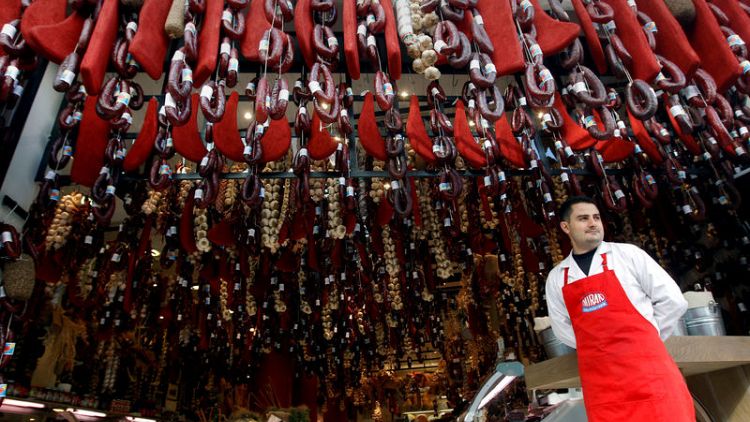By Francesca Landini
MILAN (Reuters) - Inflation in the euro zone is not at the level the European Central Bank wants it to be, ECB policymaker Klaas Knot said in an interview published by Italian daily Corriere della Sera on Sunday.
Euro zone prices rose by 1.7 percent year-on-year in April from 1.4 percent in March, according to EU statistics agency Eurostat. The acceleration offered some mild relief to the European Central Bank, which targets inflation of just below 2 percent in the 19-nation euro zone.
Knot, the Dutch central bank governor, said the current situation was "not full convergence to below but close to 2%, I think. We have a figure in mind that is clearly closer to 2% than the number we have seen over the last five, six years or so."
According to an English transcript of his interview published on the Italian daily's website, Knot said: "The only thing that we can do is to keep the pressure up, to make sure the economy continues to perform at high levels of capacity utilisation and the economy continues to print GDP numbers in excess of potential growth."
"At some point this chain of events will also lead to higher prices."
The Dutch central banker said that the process through which prices rise has slowed and become more uncertain because of globalisation and economic shocks, but that it has not broken down.
"First quarter euro area GDP growth seems to have rebounded to a very nice level, 0.4% is slightly above potential already," Knot said. If the economy continues to rebound, the ECB's policy is "on the right course," he added.
The Dutch central banker also said there was a case for more public investment in Europe but added this should not be done by increasing public deficit or debt.
Speaking about Italy, which has the second-largest debt-to-GDP ratio in the euro zone but also a high level of private wealth, Knot said the country had a redistribution problem and that wealth tax would be the standard textbook solution.
But he said he stopped short of giving advice and that this was not his role.
Rome should be more disciplined regarding public debt, which is well above EU limits and it is also creeping up, Knot said.
"With 130% debt to GDP level compared to a 60% threshold, the gap (for Italy) is simply too large. Even more so, as it goes up," he said according to the transcript.
(Editing by Raissa Kasolowsky)



